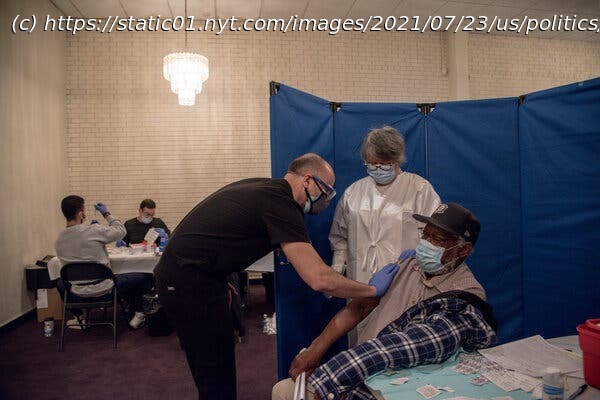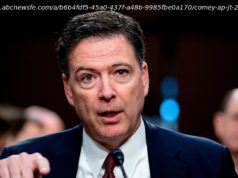The growing consensus that at least some Americans will need a booster is tied in part to research suggesting that Pfizer’s vaccine is less effective after about six months.
Biden administration health officials increasingly think that vulnerable populations will need booster shots even as research continues into how long the coronavirus vaccines remain effective. Senior officials now say they expect that people who are 65 and older or who have compromised immune systems will most likely need a third shot from Pfizer-BioNTech or Moderna, two vaccines based on the same technology that have been used to inoculate the vast majority of Americans thus far. That is a sharp shift from just a few weeks ago, when the administration said it thought there was not enough evidence to back boosters yet. On Thursday, a key official at the Centers for Disease Control and Prevention said the agency is exploring options to give patients with compromised immune systems third doses even before regulators broaden the emergency use authorization for coronavirus vaccines, a step that could come soon for the Pfizer vaccine. Dr. Amanda Cohn, the chief medical officer of the C.D.C.’s immunizations division, told an advisory committee to the agency that officials were “actively looking into ways” to provide certain people access to booster shots “earlier than any potential change in regulatory decisions.” “So stay tuned,” she added. The growing consensus within the administration that at least some Americans will need a booster is tied in part to research suggesting that the Pfizer vaccine is less effective against the coronavirus after about six months. More than half of those fully vaccinated in the United States so far have received Pfizer’s vaccine, in two doses administered three weeks apart. Pfizer’s continuing global study of its clinical trial participants shows that four to six months after the second dose, the vaccine’s effectiveness against symptomatic infection drops from a high of 95 percent to 84 percent, according to the company. Data from the Israeli government, which has fully vaccinated more than half of its population with Pfizer doses since January, also points to a downward trend in effectiveness over time, although administration officials are viewing that data cautiously because of wide margins for error. The most recent figures from the Israeli Ministry of Health, released late this week, suggested that Pfizer’s vaccine was just 39 percent effective in preventing infection in that country in late June and early July, compared to 95 percent from January to April. The vaccine remained more than 90 percent effective in preventing severe disease, and nearly as effective in preventing hospitalization. Israel began offering a third Pfizer dose to citizens with severely weakened immune systems on July 12.






